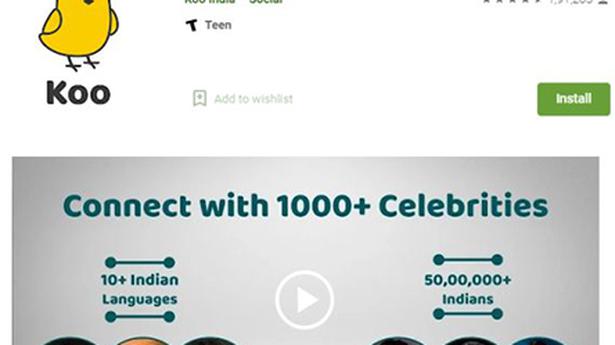
Twitter rival Koo begins voluntary self-verification for users
The Hindu
It proves authenticity of accounts, lends credibility to the opinions shared
Indian microblogging site Koo on Wednesday, April 6, 2022, announced “voluntary self-verification” for users on its platform, wherein users can self-verify their accounts with government-approved ID cards.
The platform, which competes with Twitter, said the move empowers users to prove the authenticity of their accounts on the platform, hence lending credibility to the thoughts and opinions they share.
“Voluntary self-verification promotes visibility of genuine voices. A visible marker in the form of a green tick will identify an account as being self-verified,” it added.
The move comes amid ongoing debates over whether or not user verification should be done on social media platforms to curb their misuse, and to ensure accountability. The issue was also raised during the ongoing Budget session of Parliament as a means to prevent user harm and spread of fake news. During the session, Minister of State for Information Technology Rajeev Chandrashekar had said that thee government is interested in balancing issues of privacy as well as the interests of safety and trust, and “mandatory verification” of social media platforms falls at the intersection of the two.
Currently, there is no law or rule that allows for mandatory verification of users who use the social media platforms.
For voluntary verification, Koo said users need to enter their government ID number and an one time password (OTP). Upon successful authentication, they get self-verified with a green tick in their profile.
The platform stated: “The validation process is carried out by Government-authorised third-parties. Koo would not store any information during the process. In addition to empowering users on the platform, voluntary self verification — by promoting authenticity — will also hopefully result in curbing online misinformation, hate speech, abuse and bullying.”











